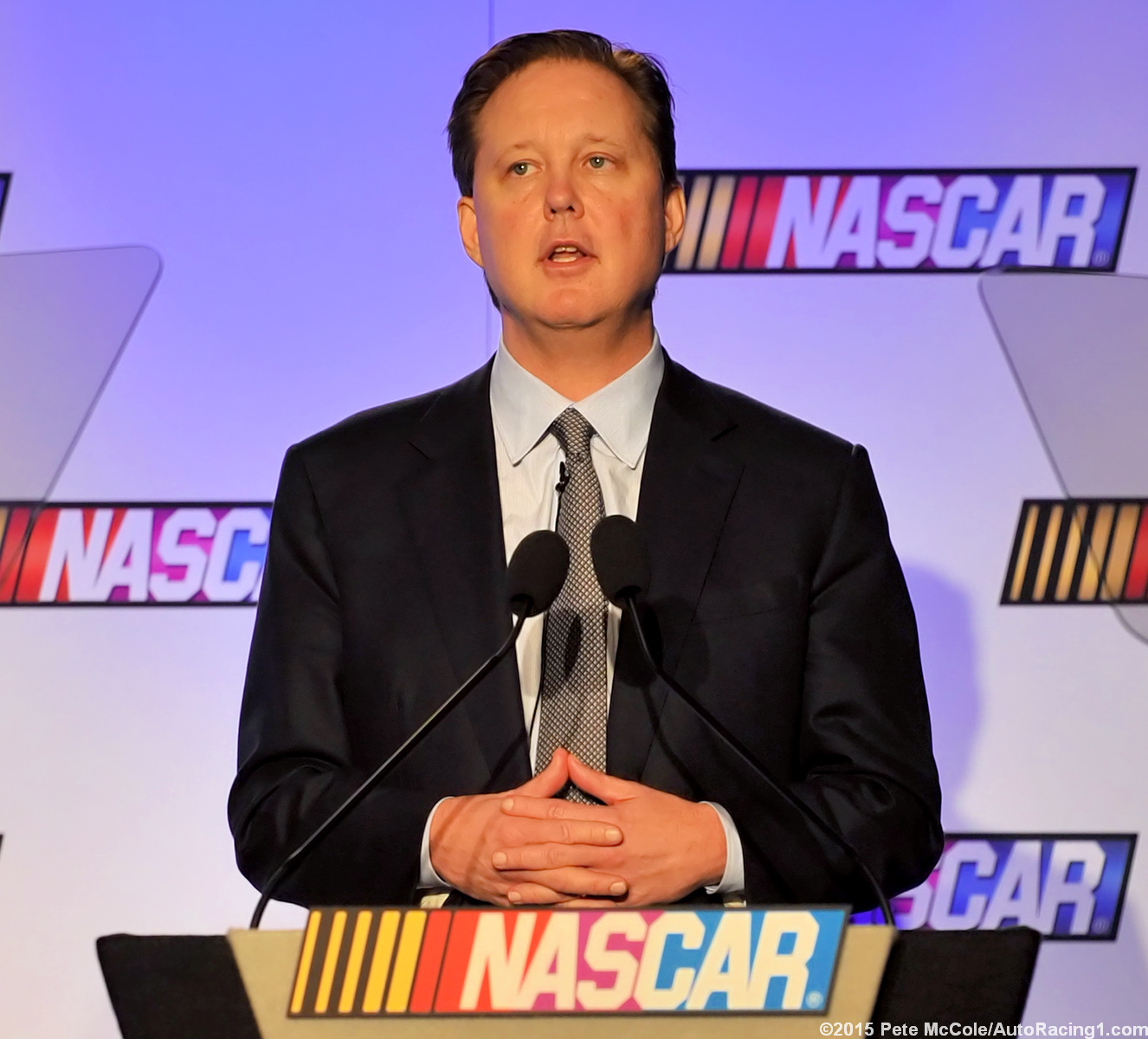NASCAR CEO admits ‘Car of Tomorrow’ was complete failure
 |
| Brian France |
It was a tough question for someone so steeped in American motorsports history.
But NASCAR chairman and CEO Brian France took it on the chin today in Dearborn: What was his biggest failure in his 12-year reign as stockcar racing's top executive?
France, 52, whose grandfather, Bill France Sr., founded NASCAR in 1948, didn't flinch in admitting it was the "Car of Tomorrow," the fifth-generation style Sprint Cup Series race car that was introduced in 2007 and was replaced in 2013 by the smaller, lighter Gen-6 model.
Criticized by many drivers, owners and fans alike for its boxy, generic design, the COT was in fact a safer car than its predecessors, but it bared little resemblance to its street-going cousins. It also raced pretty well, too.
France, who was in town as a guest speaker at the Detroit Economic Club luncheon in Dearborn, didn't duck the question from Dutch Mandel, publisher of Autoweek Media Group.
"We are going to make mistakes," said France, who has pushed the competitive envelope at NASCAR since taking over from his father Bill France Jr. in 2003, making significant changes to series qualifying rules and the Chase for the Sprint Cup Championship format, among other things. "Occasionally, we make a big one now and again. I would say that if there is one thing we could have done better in the last 10 years under my watch, is when we launched what we called 'the new car.' It is now called the Gen-5. We just didn't get the collaboration we needed to get from the industry, the owners, the drivers, the engineers and car manufacturers.
"They had a voice, but they didn't have a loud enough voice, and so we changed that."
The Gen-6 car that is now used in Sprint Cup looks a lot more like your Chevrolet, Ford or Toyota. It has generally been embraced by teams and drivers, though not universally, for its racy nature.
France, whose audience today included students from Henry Ford High School, Martin Luther King Jr. High School, Clarkston High School, Macomb Community College and Northwood University, also fielded and discussed topics such as NASCAR's growth, diversity initiatives, safety standards and four-time Cup champion Jeff Gordon, who will retire from full-time driving at the end of this season.
With tables also filled with leaders from the Detroit Three auto manufacturers, Ford Racing and OEM players such as Penske Corp., France said "we want everybody to be a NASCAR fan … like everyone else, we are watching a very changing demographic, particularly the Hispanic market. We do a lot of things to have an impact in those areas."
On Gordon's upcoming retirement, France said life without Jeff would be tough.
"Obviously, he has been an important part of our present and our history," said France of the Hendrick Motorsports ace. "He's a great human being on top of it. My hope is that he'll stay with the sport, maybe in the broadcasting side, maybe in team ownership … He is an iconic driver in our sport."
At the end of the luncheon, France, who championed new TV packages recently for NASCAR with Fox and NBC through 2024, had a moment to talk to the Free Press before catching a plane.
Asked the importance of Michigan International Speedway in Brooklyn maintaining its two traditional NASCAR weekends, in June and August, he said:
"MIS is in the backyard of the automakers. It is most important to us. I don't see any change in our race schedule."
On Danica Patrick, one of NASCAR most popular yet criticized drivers – we asked, can she win a Sprint Cup race?
"I think so," said France of the Stewart-Haas Racing member. "Sure she can." (No he didn't whisper "when we give her 'The Call'") Detroit Free Press
